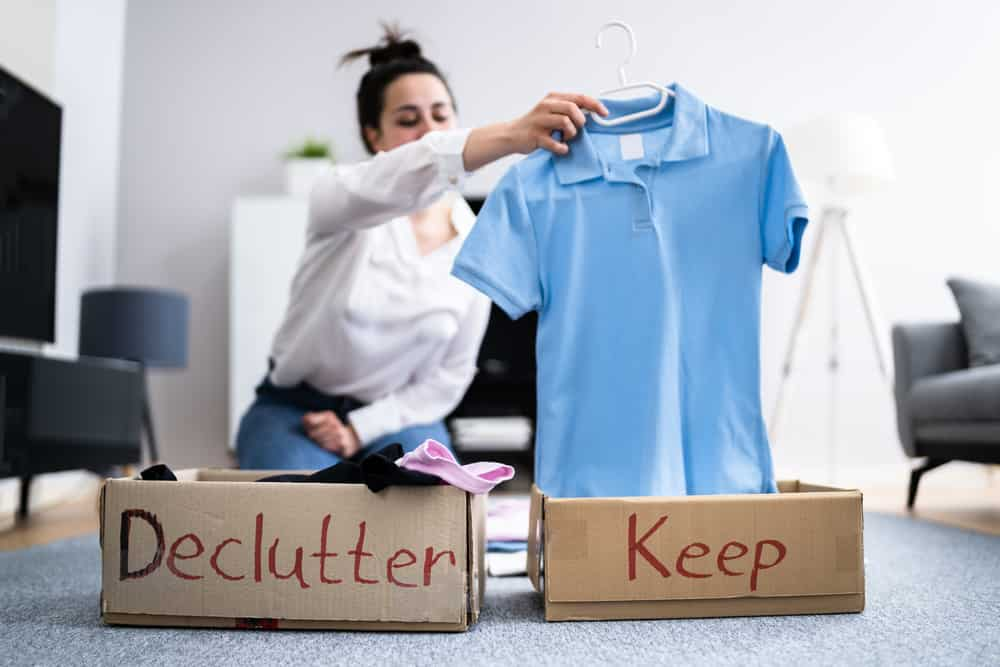The Do's and Don'ts of Storing Items
Table of Contents
Whether you’re moving home or having a mass clear out, it’s important to think about the items you want to put into storage and the items that you’re best to leave out. We’ve teamed up with Oneflare, the service that connects you to the right experts, to highlight the items suitable for storage and the items best to leave out.
Items to put into Storage
When thinking about what items you need to put into storage it’s a good idea to make a list of items according to their size and fragility. That way you will be able to work out the size of the storage unit you require and buy enough boxes, bubble wrap and packing tape to secure all of your belongings.
Fragile Items 
Fragile items such as glass ornaments, mirrors, vases and ceramics should be packed securely with plenty of bubble wrap and packing tissue. Place these items in sturdy cardboard boxes and mark ‘fragile’ clearly.
Furniture Large bulky items like dining tables, console tables, bookcases and sofas should be dismantled into pieces, if possible, to make it easier to store them. Cover furniture with protective sheets to prevent damage such as dents and scratches. Furniture should be moved into storage first when there is more room to manoeuvre, the hollow spaces around furniture can be used to store smaller boxes.
White Goods

It is important to disconnect and drain (if necessary) whitegoods such as your washing machine, dishwasher and fridge/freezer. In order to avoid whitegoods growing mould and emitting offensive odours it is important to give items a good clean before placing them into storage. To ensure your washing machine is ready for storage run a hot cycle, with ½ cup of bicarbonate soda and 2 cups of white wine vinegar to properly clean the inside of the drum. When the cycle has finished leave the door open to dry the inside. Wipe clean the outside of machine and its now ready for storage.
Clean the inside of your fridge and microwave, to get rid of food remnants, allow to dry and store.
Top Tip: When storing items such as your washing machine, dishwasher and fridge leave their doors open slightly and place a deodoriser inside. Baking soda and coffee grounds are good options to use as deodorisers.
When storing white goods it’s important to keep fridge/freezers standing upright to avoid causing any damage to the compressor bracket. If you have to store your fridge on its side for any reason make sure that you place it upright for 24 hours before plugging in again. It’s also recommended to tape down cables and wires.
Electronic Items
Electronic items such as TVs and sound systems should be packed carefully in their original packaging if possible. If you have thrown out the original boxes your removalist should be able to provide you with suitable storage boxes and packaging. Oneflare have highly rated and verified removalists near you that can assist with all your moving needs.
Tie up cords and cables, labelling them according to which electronic item they go with. It is also a good idea to remove batteries and ink cartridges, as they can spill and cause damage, if stored for a long period of time or at the wrong temperature.
Items to not put in storage
Whilst its obvious to most that perishables like food should not be put into storage, there are those who neglect to think about what other items may be dangerous or cause damage in storage. The below items are best to be kept out:
Paint

It’s best not to store that left over paint from the living room you renovated three years ago. Paints can smell and even worse cause substantial damage to other items in the storage unit if spilled.
Toxic/Flammable Chemicals
Toxic or flammable chemicals such as lighter fluid, petrol, rat poison, fertilisers, compressed gases and fireworks should not be placed into storage as they can emit foul smells and will degrade over time.
Plants
Plants are not allowed to be put into storage units as damp soil will lead to mould and bad odours, causing damage to your belongings.
Valuable Items 
Valuable items such as expensive paintings, jewellery and clothing can be placed into storage if packed away correctly in airtight, sealed bags or containers to protect them from the elements. This way clothes will be protected from damp and mothballs, whilst paintings will avoid colour fade. It is important to store paintings at the correct temperature to avoid degradation. If you have an expensive wine collection or prized musical instrument these must be kept in climate controlled storage facilities to avoid damage.
Weapons It is illegal to keep weapons and firearms in storage – so better not to even think about it!
Dirty clothes
If you want your clothes to be as good as new when you retrieve them from Self Storage, make sure to wash and dry your clothing before putting them into storage. If you skip laundering, any dirt and stains will settle into the fabric and be difficult to clean later. Cleaning clothes beforehand will also make your clothing ready to wear when you take them out of storage.
If you’re moving home and need quotes from local service providers head to Oneflare who have registered and verified businesses from removalists, interior designers, plumbers, electricians, painters and decorators and everything in between, ready to take on your jobs.











